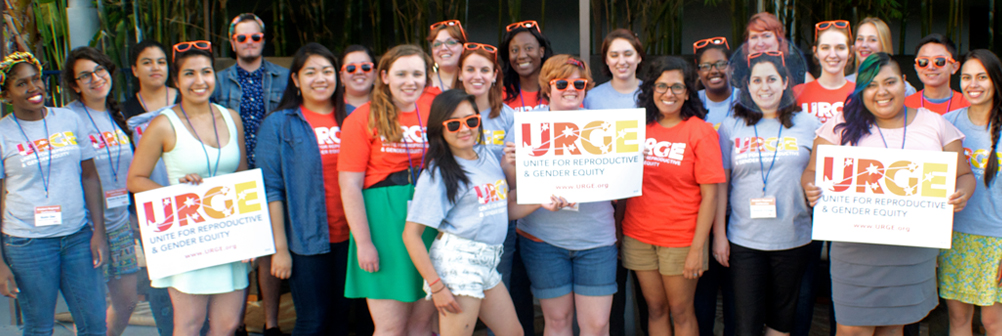Alumni Spotlight: Juana Rose Cavero
 Juana Rosa Cavero is the Director of the Reproductive Justice Coalition of Los Angeles. She graduated from the University of Colorado at Boulder in 2003 with degrees in International Affairs and Spanish for the Professions, and a Business minor.
Juana Rosa Cavero is the Director of the Reproductive Justice Coalition of Los Angeles. She graduated from the University of Colorado at Boulder in 2003 with degrees in International Affairs and Spanish for the Professions, and a Business minor.
Read more from Juana here:
How were you involved with Choice USA?
I was involved with Choice USA through my organizing work with the United States Student Association and again as Co-Chair of the Board of Colorado Organization for Latina Opportunity for Reproductive Rights. While with USSA, I was co-chair of the National People of Color Caucus and was introduced to the possibility of organizing
What do you do now and how do you bring a reproductive justice frame to the work you do?
Since 2010, I have been the Director of the Reproductive Justice
What other things have you done since graduating?
In 2009, I was accepted as a Fellow of the Women’s Policy Institute of California and successfully passed legislation to protect farm workers from overexposure to pesticides. I was also on staff at the Pacific Institute of Women’s Health where I led communications and outreach efforts to community-based organizations throughout the U.S. and around the globe, including Sudan, Uganda, Peru and Guatemala to advance the sexual and reproductive health of women and girls.
Prior to coming to Los Angeles, I served as Co-Chair of the Board of the COLOR and guided the organization through its first executive director and initial program development. Again, it was here that I co-found the LUZ Reproductive Justice Think Tank to integrate reproductive justice issues into Colorado’s social justice organizations.
Aside from RJ, I have extensive experience in reducing tobacco related health disparities as Policy Manager at the Colorado Tobacco Education and Prevention Alliance and as Education Coordinator at the Latino/a Research and Policy Center. I provided technical assistance to community-based organizations, local health agencies and advocates to implement tobacco prevention and control policy initiatives.
In 2012, I won the Emerging Leader Award from the California Coalition for Reproductive Freedom. I also completed the Regional Institute for Health and Environmental Leadership, a yearlong leadership development program in public health and the White House Project Training Program, which prepares women to run for elected offices.
What skills or knowledge did you learn from Choice USA that you use in your current work/life?
The biggest skill that I gained from CHOICE is the need to integrate and incorporate reproductive health and rights into all aspects of policy. Keeping it separate only serves to continuously alienate the needs of the women. We must continue to make reproductive health and rights a basic need, not a special need only relevant to women. CHOICE gave me confidence in taking the RJ frame to reach out to other social justice movements about how reproductive health and rights was relevant to their mission.
What are your top priorities in politics and/or reproductive justice?
My top priority is to strengthen the infrastructure of women of color led advocacy groups, so that our efforts can be more impacting. There are so many groups, coalitions, and organizations that are doing phenomenal RJ work. However, funding, technical assistance, advocacy training and organizational development are resources that many times we can not acquire. I believe that we have those resources among us, we just need to exchange such information in efficient ways. RJCLA is an example, of how organizations can come to exchange such resources and skills to support each other’s work.
Who inspires you?
Right now, working moms inspire me. With two babies under 3, I am in a phase in my life where I ask myself “how did the mothers before me change the world?” I feel that I must take the lessons of grandmothers and great-grandmothers in that they fed their children, fed themselves and fed their communities with their wisdom. They did it. It can be done. It will be done.

